Compulsory Welsh citizen 'democratic duty' call
- Published
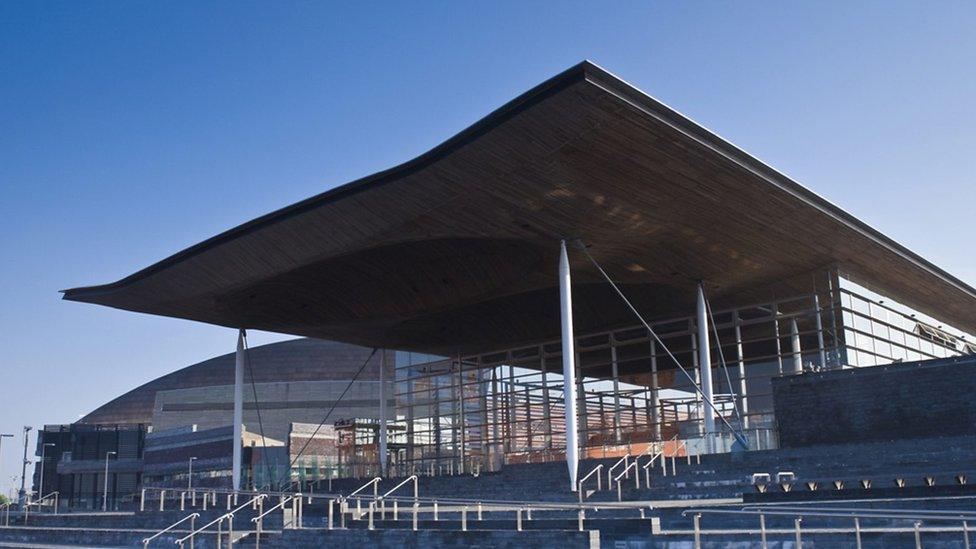
Residents could serve in a second chamber for one day a month, David Melding suggests
Welsh citizens should be called-up for compulsory democratic service in the same way as "jury duty", an AM has said.
Conservative David Melding said a second chamber of the assembly should be created for residents to influence decisions and laws.
Mr Melding said introducing a "citizens service" in Wales would help narrow the gap between politicians and the public.
He said it would help keep politicians and officials "rooted".
Turnout for assembly elections is traditionally low, with just 45.3% voting last May while turnout in Wales for the EU referendum was 71.7%.
The AM for South Wales Central said the growing distance between politicians and the public, and the lack of engagement was "very damaging".
There are already hopes that a new youth parliament for Wales will start in 2018, to engage young people in politics, after the former Youth Assembly for Wales - known as Funky Dragon - closed in 2014.
Speaking on BBC Wales' Sunday Supplement programme Mr Melding said a "citizens' service" should be introduced, in a similar way to jury duty, with residents randomly selected to sit on panels, including local health boards to look at how hospitals and GP services are run, and local town and county councils to have their say on new leisure facilities and bin collection changes.
His idea could see the creation of a second chamber in the National Assembly for Wales, in Cardiff Bay, made up of 60 unelected citizens, who would look at decisions made in the Senedd.
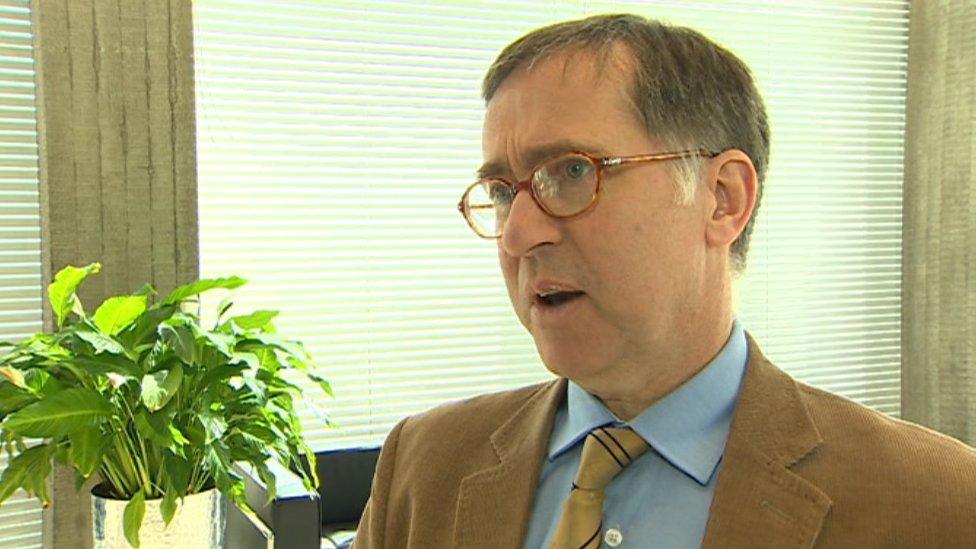
David Melding said citizens' participation would help address the "growing distance" between politicians and the public
It would mean residents could get a letter in the post asking them to serve, which could be for one day a month for a year or more, he said.
Speaking ahead of the publication of an essay in the Western Mail, Mr Melding said: "The actual second chamber would not consist of 60 set people, it would be 600 people, or 6,000 over several years."
He added: "It would be a letter saying you have been selected to engage in some form of participation, the citizen would have a choice because obviously not everybody would want to come down to Cardiff to sit in Tŷ Hywel and have a debate about something that is then fed into the Senedd.
"You'd have options, one might be to do some service in your local town council for instance, or to sit on a local citizens' jury looking at whether a leisure centre should be built or not."
Mr Melding also spoke of his support for universal basic income - where everyone would receive the same sum of money regardless of whether they work or not. He clarified that the views were not Conservative Party policy, but a personal view.
- Published24 April 2016
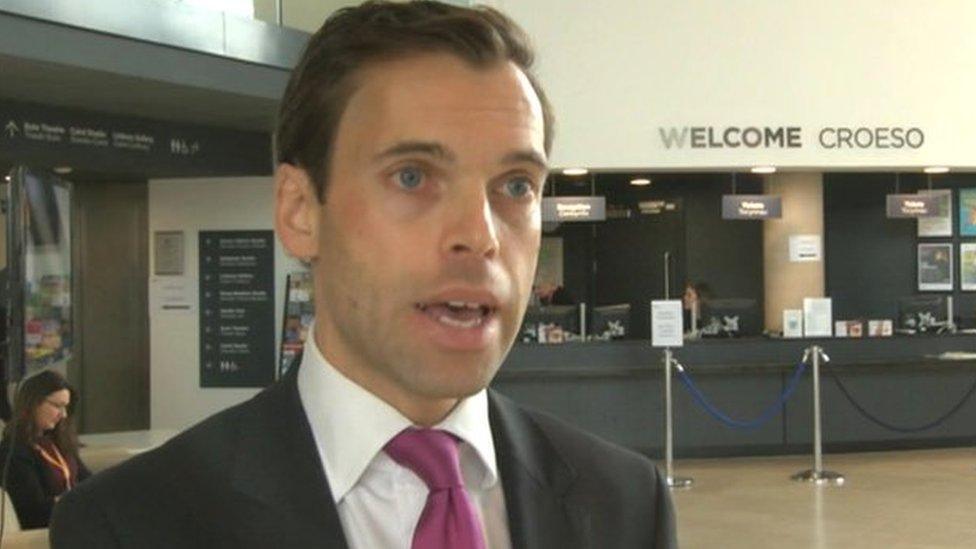
- Published17 September 2017
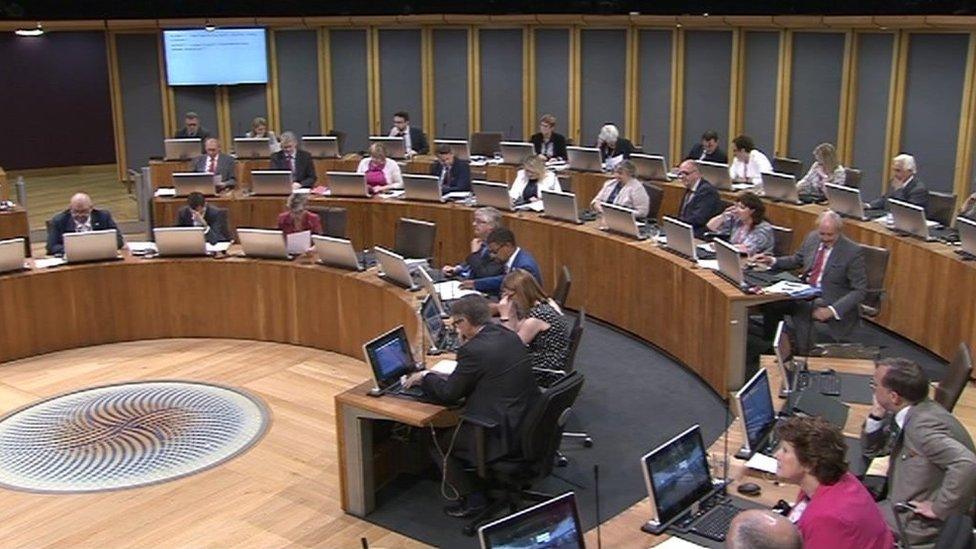
- Published13 August 2017

- Published27 September 2017
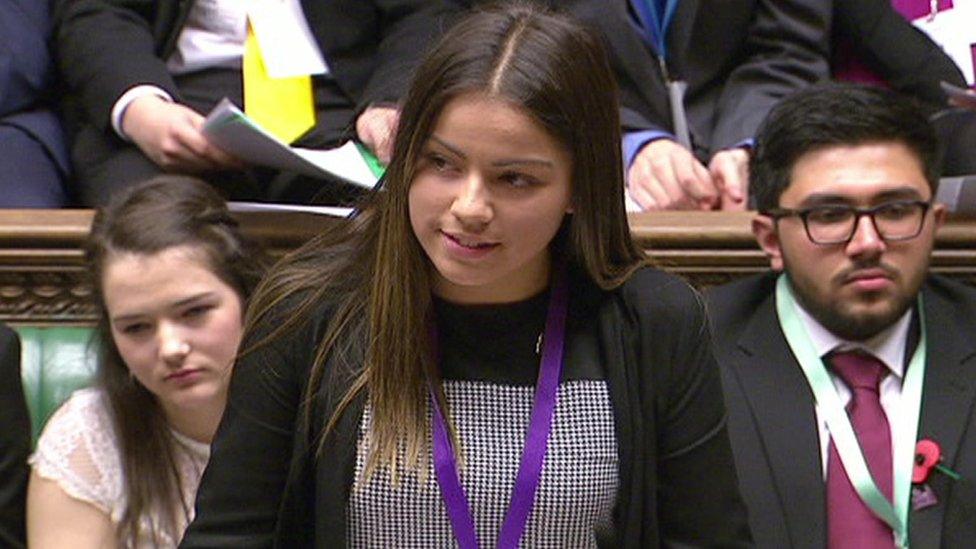
- Published13 June 2017
